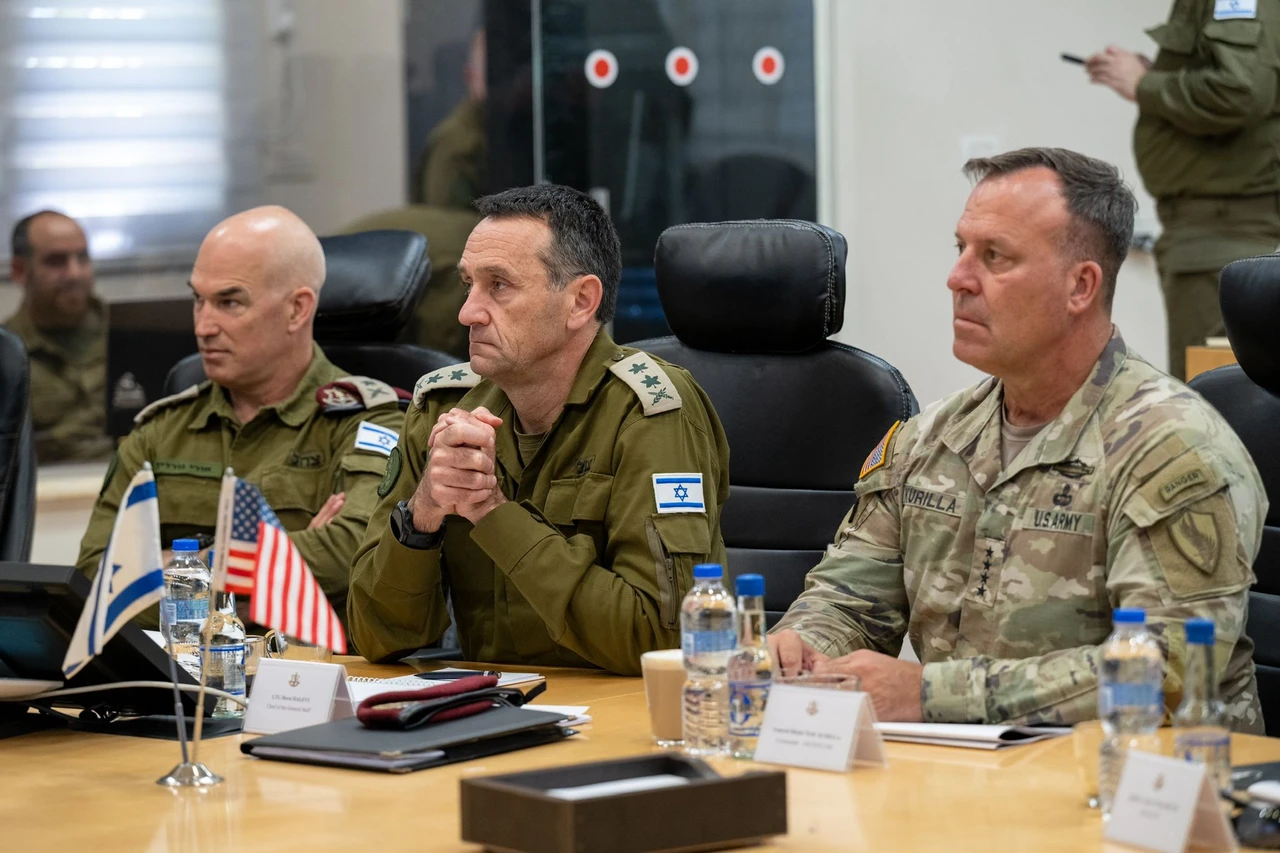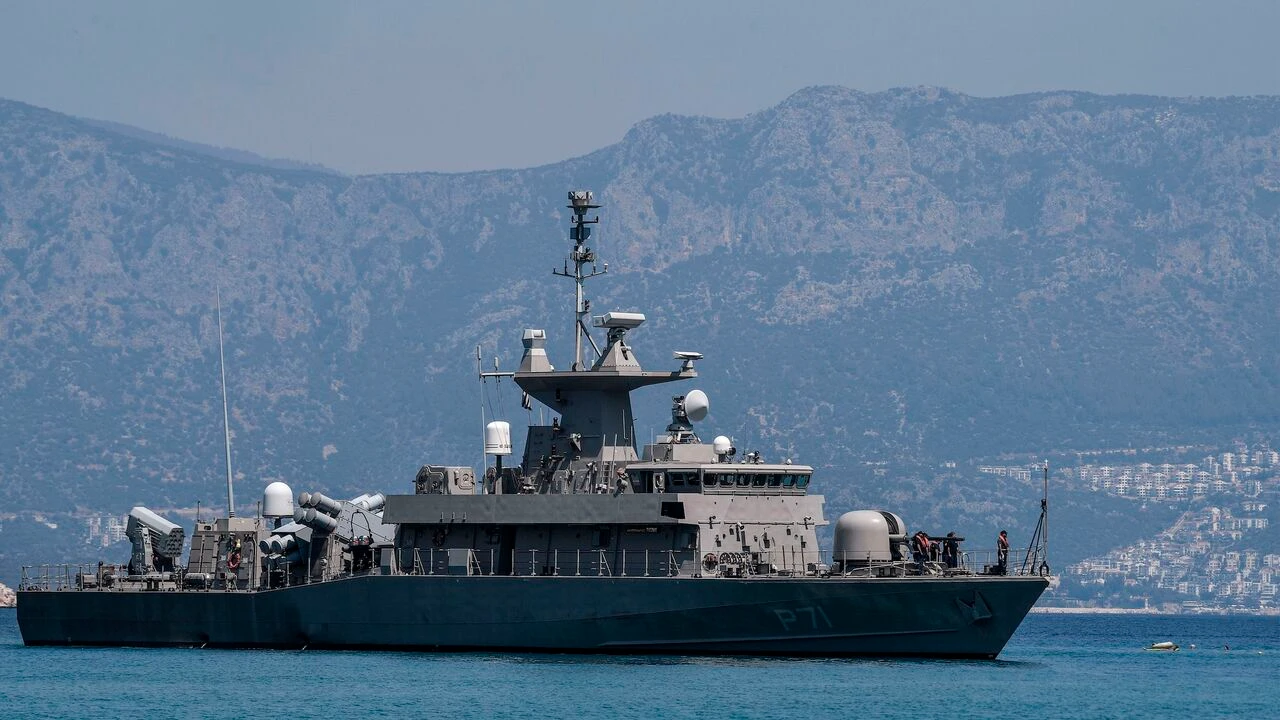CENTCOM Chief in Israel to counter potential Iranian threats
 The Commander of U.S. Central Command (CENTCOM), General Michael Erik Kurilla, arrived in Israel for an official visit hosted by the Chief of the General Staff, LTG Herzi Halevi 17 July 2024 (Photo via IDF)
The Commander of U.S. Central Command (CENTCOM), General Michael Erik Kurilla, arrived in Israel for an official visit hosted by the Chief of the General Staff, LTG Herzi Halevi 17 July 2024 (Photo via IDF)
General Michael Kurilla, Commander of U.S. Central Command (CENTCOM), arrived in Israel on August 3, 2024, amid rising tensions with Iran and Hezbollah.
The visit follows the recent assassinations of key Hamas and Hezbollah leaders, which have prompted threats of retaliation.
Why it matters: The U.S. is bolstering its military presence, deploying additional forces to the region, and seeking to strengthen alliances with Middle Eastern countries.
General Michael Kurilla is in Israel to coordinate regional defenses against possible Iranian and Hezbollah retaliation.
Current situation
- U.S. military build-up: The Pentagon has increased its military assets in the region, including additional fighter jets, warships and ballistic missile defenses. Defense Secretary Lloyd Austin emphasized: “Our commitment to Israel’s security is unwavering, and we are prepared to address any threats that may arise.”
- U.S. support: General Kurilla’s visit aims to consolidate regional support for Israel. “We are here to ensure that Israel has the support it needs to defend itself against any threats,” Kurilla stated during his arrival in Israel.
- Anticipated retaliation: U.S. and Israeli officials expect Iran and Hezbollah to launch retaliatory attacks as early as Monday. “We are on high alert and prepared for any scenario,” a senior Israeli defense official told reporters.
- Regional coalition building: Kurilla is engaging with Middle Eastern allies, including Jordan and Gulf nations, to solidify a coalition capable of intercepting and countering any Iranian aggression. “The geopolitical landscape is complex, and we are working diligently to secure regional backing,” Kurilla remarked.
Challenges
- Diminished support: The Biden administration faces challenges in garnering support from Middle Eastern allies due to the backlash Israel faces over its actions in Gaza. The assassination of Haniyeh has fueled anti-Israel sentiments, complicating efforts to rally allies.
- Jordan’s strategic role: Jordan played a crucial role in the April defense efforts against Iran, intercepting Iranian drones and allowing US and Israeli jets to use its airspace. “Our cooperation with Jordan is vital, and we hope for similar support should tensions escalate,” a U.S. official said.
Behind the scenes
U.S. and Israeli officials are closely monitoring the situation, uncertain whether Iran and Hezbollah will coordinate their efforts or act independently. Intelligence suggests that both parties are finalizing their military strategies and seeking political approval for potential strikes.
We are in constant communication with our allies to ensure a unified response
Michael Kurilla
What they’re saying?
- Iran and Hezbollah’s vows: Iran’s Supreme Leader Ali Khamenei and Hezbollah’s chief Hassan Nasrallah have issued stern warnings. Khamenei stated, “There will be a harsh punishment for Israel,” while Nasrallah warned, “Tel Aviv will face consequences for its actions.”
- President Biden’s caution: When asked about the potential for de-escalation, President Biden expressed hope but acknowledged uncertainty, saying: “I hope so. I don’t know.”



